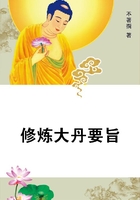In this manner, the moral laws lead through the conception of the summum bonum as the object and final end of pure practical reason to religion, that is, to the recognition of all duties as divine commands, not as sanctions, that is to say, arbitrary ordinances of a foreign and contingent in themselves, but as essential laws of every free will in itself, which, nevertheless, must be regarded as commands of the Supreme Being, because it is only from a morally perfect (holy and good) and at the same time all-powerful will, and consequently only through harmony with this will, that we can hope to attain the summum bonum which the moral law makes it our duty to take as the object of our endeavours.Here again, then, all remains disinterested and founded merely on duty; neither fear nor hope being made the fundamental springs, which if taken as principles would destroy the whole moral worth of actions.The moral law commands me to make the highest possible good in a world the ultimate object of all my conduct.But I cannot hope to effect this otherwise than by the harmony of my will with that of a holy and good Author of the world;and although the conception of the summum bonum as a whole, in which the greatest happiness is conceived as combined in the most exact proportion with the highest degree of moral perfection (possible in creatures), includes my own happiness, yet it is not this that is the determining principle of the will which is enjoined to promote the summum bonum, but the moral law, which, on the contrary, limits by strict conditions my unbounded desire of happiness.
Hence also morality is not properly the doctrine how we should make ourselves happy, but how we should become worthy of happiness.It is only when religion is added that there also comes in the hope of participating some day in happiness in proportion as we have endeavoured to be not unworthy of it.
A man is worthy to possess a thing or a state when his possession of it is in harmony with the summum bonum.We can now easily see that all worthiness depends on moral conduct, since in the conception of the summum bonum this constitutes the condition of the rest (which belongs to one's state), namely, the participation of happiness.Now it follows from this that morality should never be treated as a doctrine of happiness, that is, an instruction how to become happy;for it has to do simply with the rational condition (conditio sine qua non) of happiness, not with the means of attaining it.But when morality has been completely expounded (which merely imposes duties instead of providing rules for selfish desires), then first, after the moral desire to promote the summum bonum (to bring the kingdom of God to us) has been awakened, a desire founded on a law, and which could not previously arise in any selfish mind, and when for the behoof of this desire the step to religion has been taken, then this ethical doctrine may be also called a doctrine of happiness because the hope of happiness first begins with religion only.
We can also see from this that, when we ask what is God's ultimate end in creating the world, we must not name the happiness of the rational beings in it, but the summum bonum, which adds a further condition to that wish of such beings, namely, the condition of being worthy of happiness, that is, the morality of these same rational beings, a condition which alone contains the rule by which only they can hope to share in the former at the hand of a wise Author.For as wisdom, theoretically considered, signifies the knowledge of the summum bonum and, practically, the accordance of the will with the summum bonum, we cannot attribute to a supreme independent wisdom an end based merely on goodness.For we cannot conceive the action of this goodness (in respect of the happiness of rational beings) as suitable to the highest original good, except under the restrictive conditions of harmony with the holiness* of his will.Therefore, those who placed the end of creation in the glory of God (provided that this is not conceived anthropomorphically as a desire to be praised) have perhaps hit upon the best expression.For nothing glorifies God more than that which is the most estimable thing in the world, respect for his command, the observance of the holy duty that his law imposes on us, when there is added thereto his glorious plan of crowning such a beautiful order of things with corresponding happiness.If the latter (to speak humanly) makes Him worthy of love, by the former He is an object of adoration.Even men can never acquire respect by benevolence alone, though they may gain love, so that the greatest beneficence only procures them honour when it is regulated by worthiness.
*In order to make these characteristics of these conceptions clear, I add the remark that whilst we ascribe to God various attributes, the quality of which we also find applicable to creatures, only that in Him they are raised to the highest degree, e.g., power, knowledge, presence, goodness, etc., under the designations of omnipotence, omniscience, omnipresence, etc., there are three that are ascribed to God exclusively, and yet without the addition of greatness, and which are all moral He is the only holy, the only blessed, the only wise, because these conceptions already imply the absence of limitation.In the order of these attributes He is also the holy lawgiver (and creator), the good governor (and preserver) and the just judge, three attributes which include everything by which God is the object of religion, and in conformity with which the metaphysical perfections are added of themselves in the reason.














